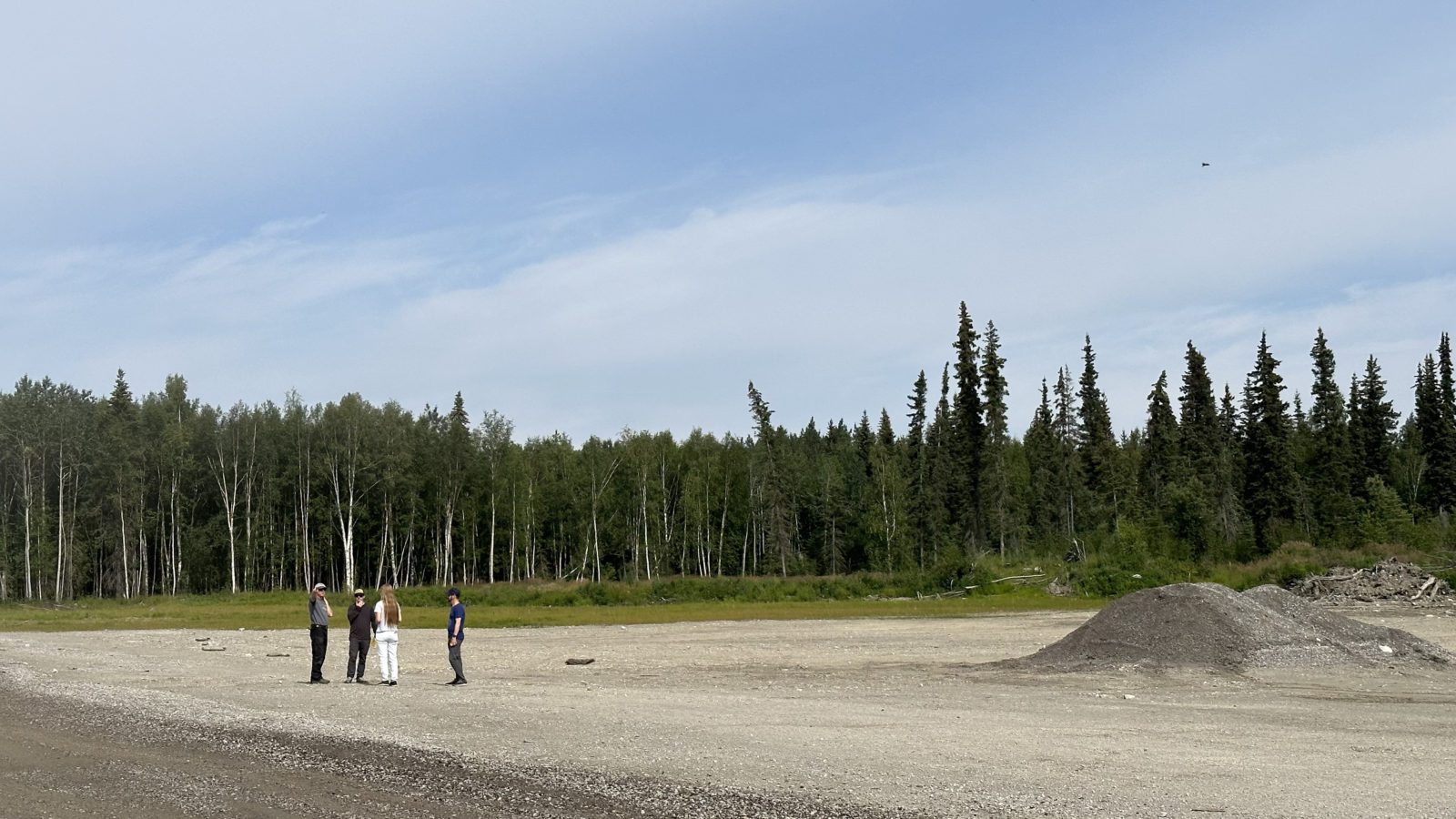Next Step Toward Energy Decision-Making
In the pursuit of a greener and more sustainable future, education plays a pivotal role in shaping attitudes and decisions. Recognizing this, the Renewable Energy Alaska Project (REAP) collaborated with technical partners from the National Renewable Energy Laboratory (NREL) and the Alaska Native Tribal Health Consortium (ANTHC) to travel to the ETIPP community of McGrath. The goal: to enhance the community’s understanding of electricity, the grid, renewable energy, and energy efficiency.
The trip was an exceptional opportunity to engage with more than 50 community members, of all ages, in a series of hands-on activities designed to inform and inspire. The result was overwhelmingly positive, highlighting the impact of the initiative.
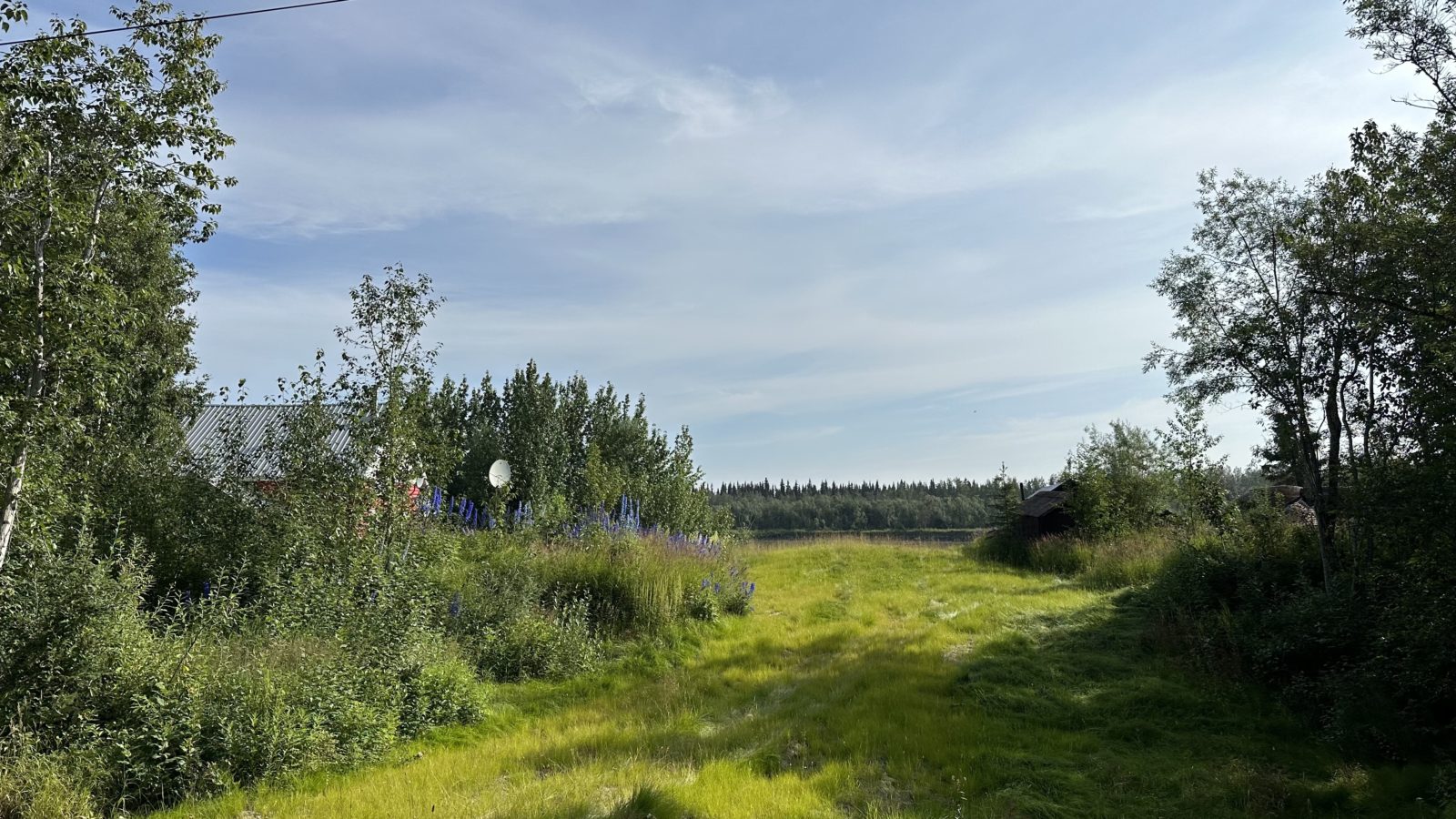
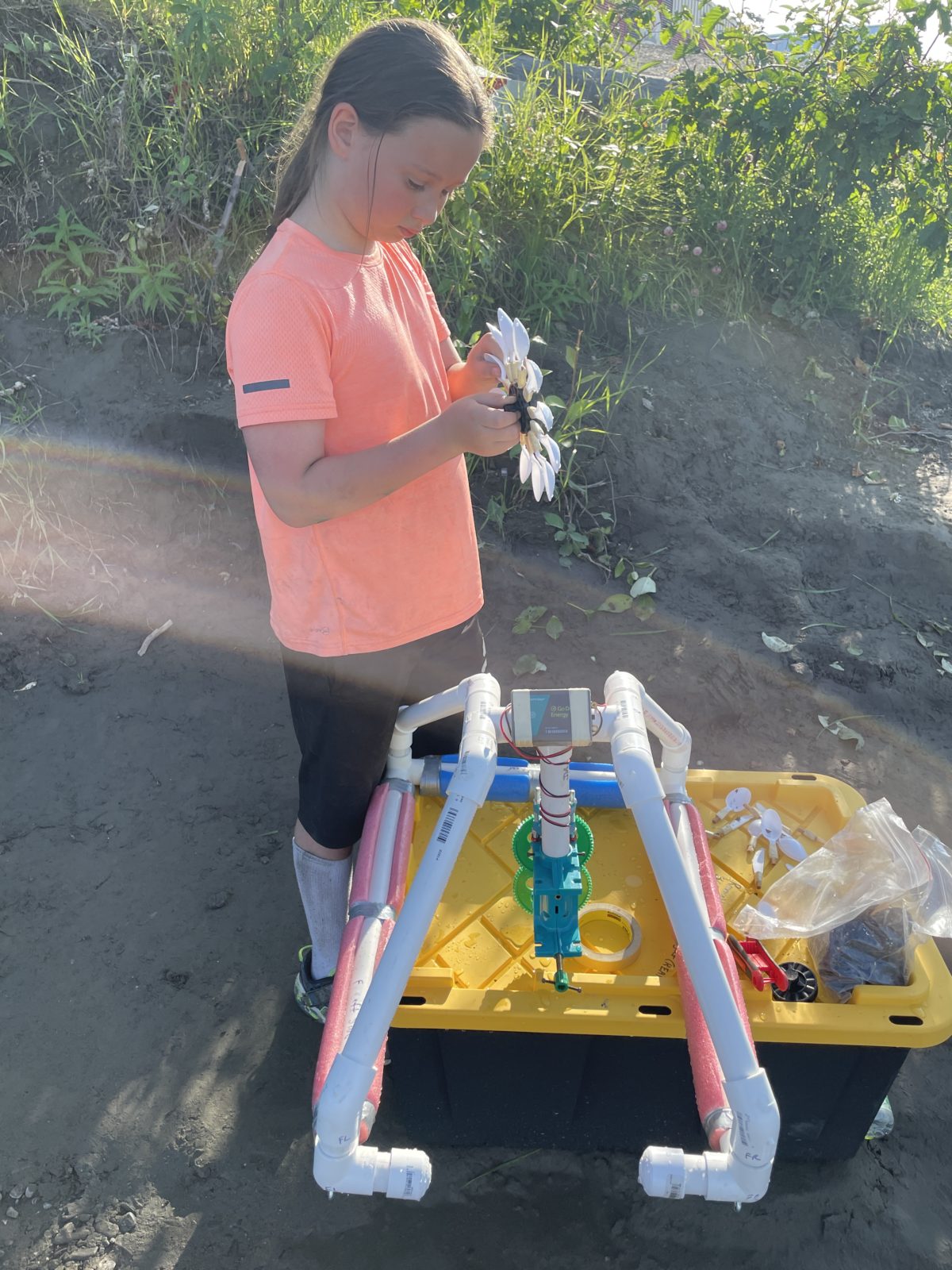
Exploring Hydrokinetic Technology: Power from the River
Kicking off the series of events was an engaging cookout by the Kuskokwim River, creating an welcoming environment for participants to come together. This initial gathering set the stage for a hands-on activity centered around hydrokinetic technology. Using a pre-built turbine on a PVC structure, attendees had the chance to experiment with constructing their own blade combinations using various utensil ends. The excitement was palpable as they observed the turning of the turbine, powered by the flowing river. This activity sparked conversations and deeper understanding of hydrokinetic technology, creating more understanding and encouraging curiosity.
Pictured: A local student creates his own blades for the hydrokinetic demonstration to test out in the Kuskokwim River.
Solar Exploration: From Vibrating Bugs to Rovers
Educational outreach is most effective when it caters to all age groups. With this in mind, the team organized activities specific for different age ranges. For the younger participants, a solar bug-building activity proved to be a hit. Vibrating solar bugs, assembled by attaching solar panels and small motors to paper cutouts, brought the concept of solar energy to life. The interactive bugs demonstrated the principles of solar power in a playful and engaging manner, setting the stage for further exploration.
For older students, a solar rover-building activity challenged their skills and creativity. These model cars, equipped with pulley motors and solar panels, offered hands-on experience in designing and assembling a functional solar-powered vehicle. The project’s success extended beyond the event, inspiring participants to continue experimenting and innovating on their own, demonstrating the lasting impact of effective education.
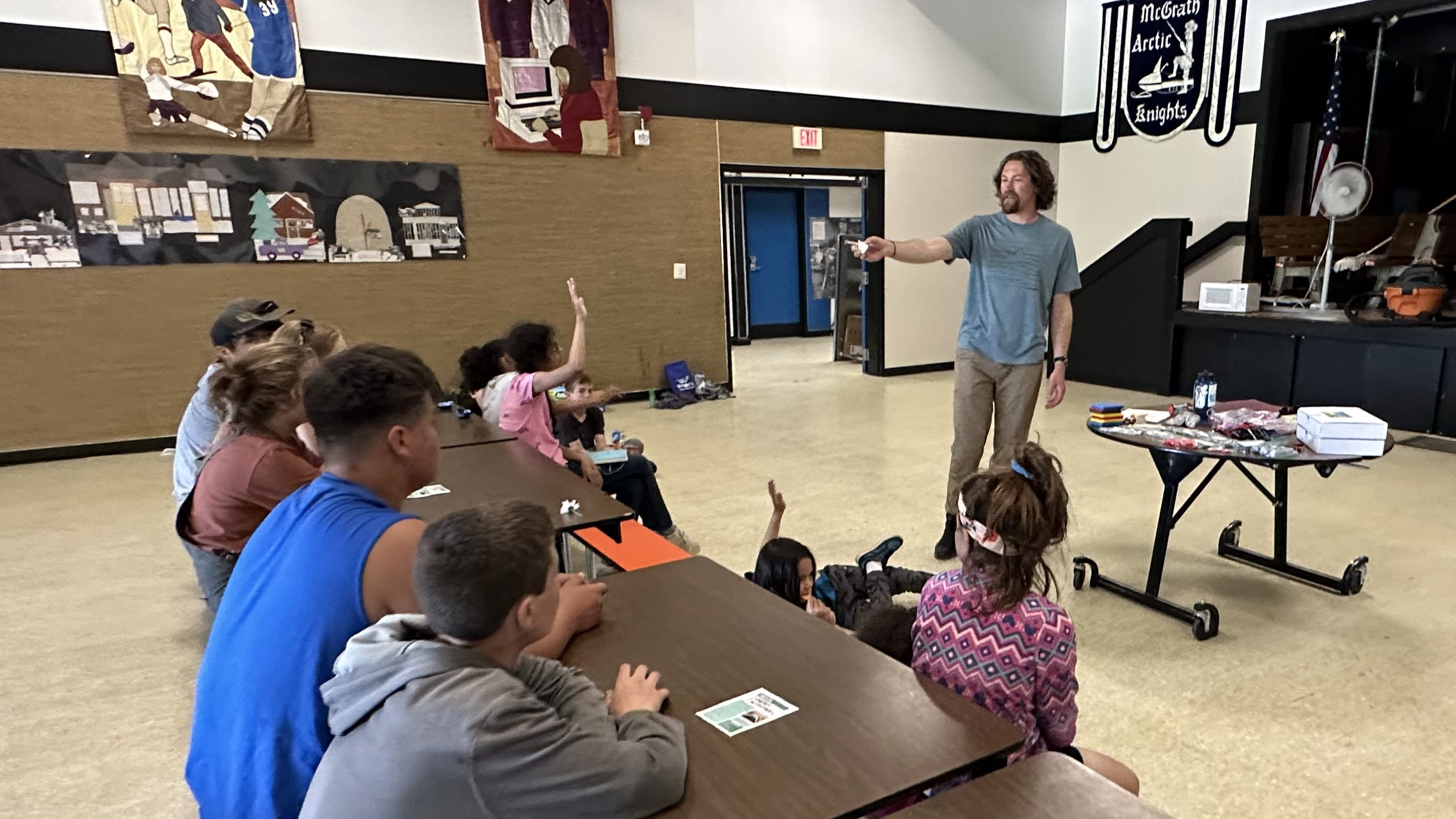
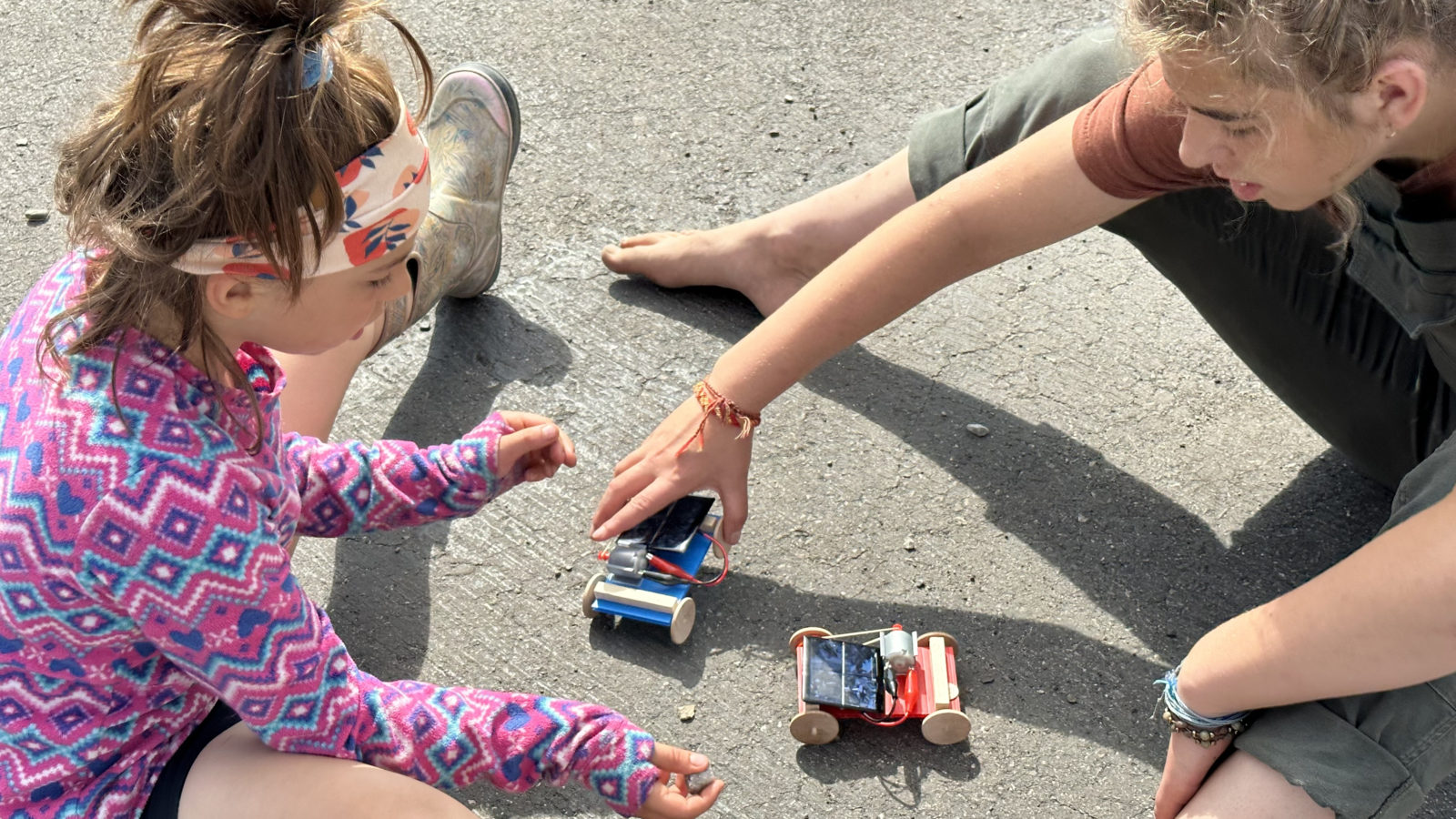
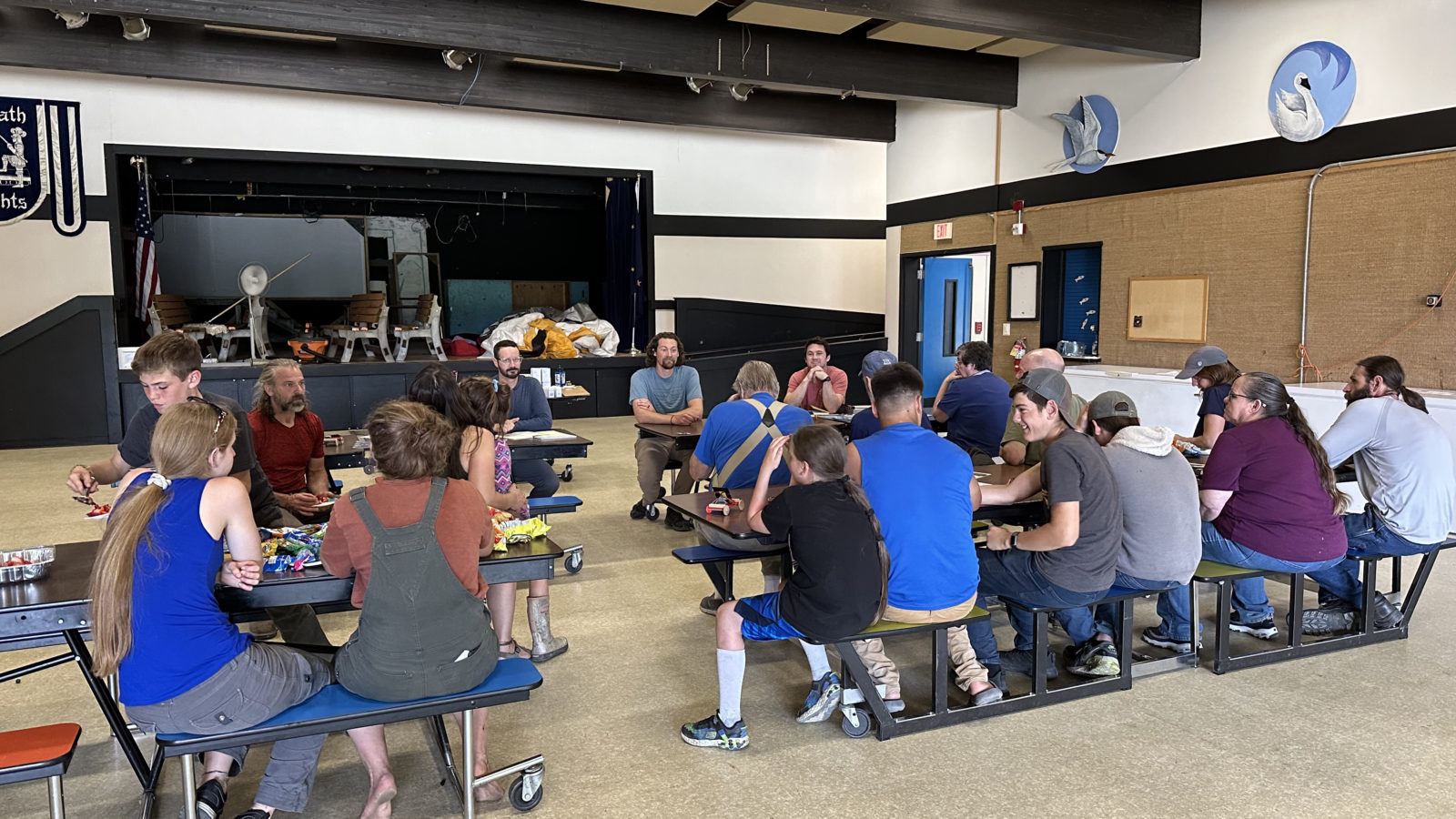
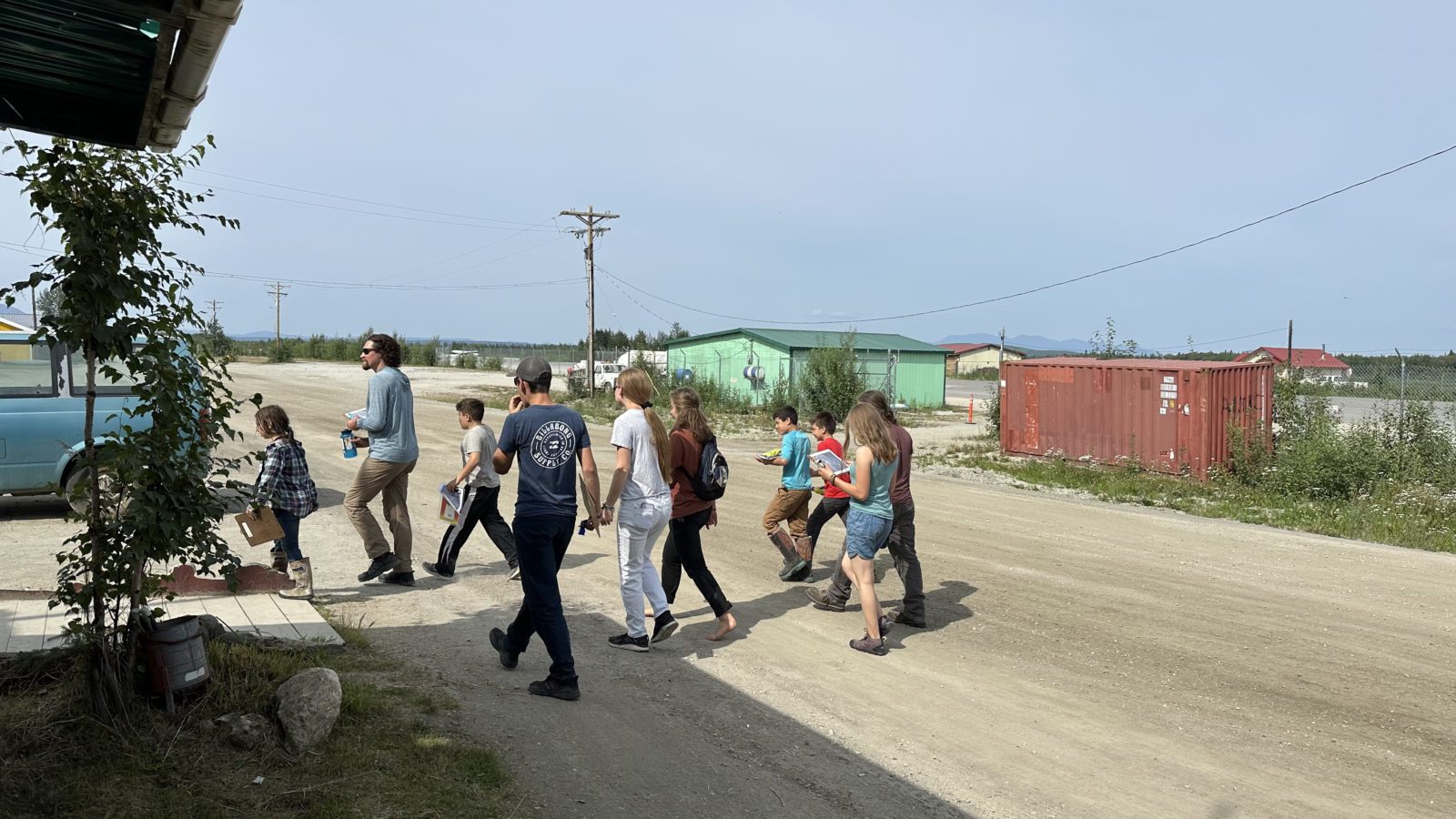
Empowering Communities: Electricity Metering and Energy Expedition
Education isn’t limited to age; it extends to the entire community. With this philosophy, an activity focusing on energy efficiency from the AK EnergySmart curriculum brought adults and children together to understand the nuances of electricity consumption. Using electricity monitors, participants assessed the energy usage of various appliances, from fans to hairdryers. The insights gained allowed them to calculate the cost of powering each device, fostering a sense of awareness and accountability.
A walk through the energy systems of McGrath highlighted the tangible aspects of electricity generation and consumption. The energy expedition led youth participants through the power plant, where they observed generators and control systems, and to the McGrath Native Village Council to discuss the advantages of distributed solar arrays. This firsthand experience deepened their understanding of the interconnectedness of energy systems within their community.
Mapping Resources and Lessons Learned
Beyond interactive activities, the visit involved assessing the community’s potential for renewable energy resources. A tour of local infrastructure, including the power plant, water treatment plant, city hall building, and potential solar array locations, allowed community members to offer valuable insights based on their knowledge of the area, emphasizing the significance of local perspectives in sustainable planning.
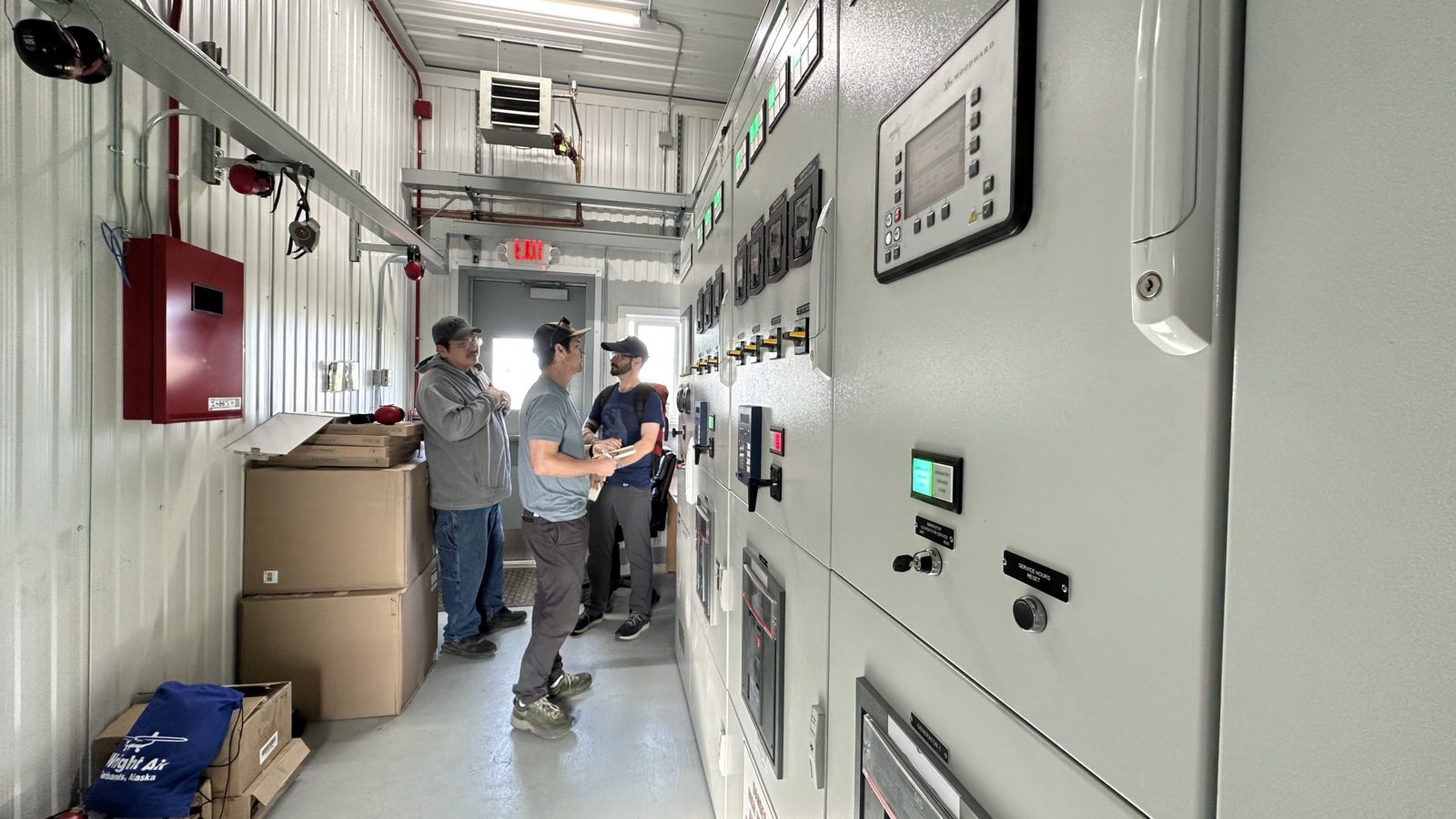
Charting a Brighter Energy Future
The trip to McGrath showcased the power of education in the realm of renewable energy and sustainability. By engaging community members of all ages in interactive and informative activities, the initiative laid a solid foundation for informed decision-making and inspired individual action. The positive feedback and enthusiasm demonstrated the potential for similar endeavors to spark positive change in communities around the state. As the journey continues to include education on energy-decision making, workforce development, and funding 101, it’s evident that education remains a cornerstone in the pursuit of a cleaner, more sustainable future.
